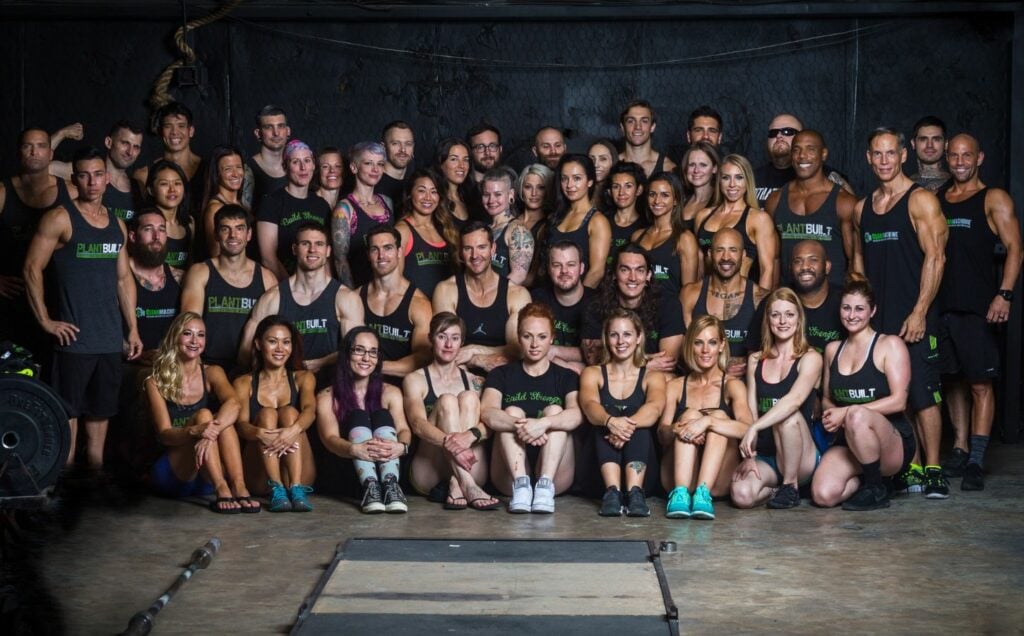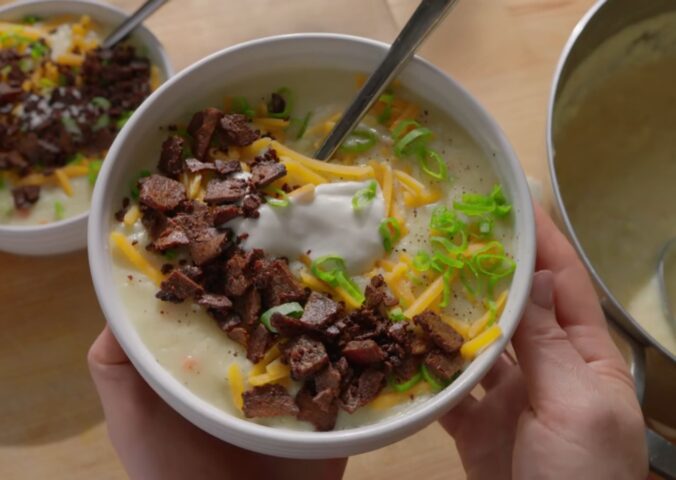While popular culture would have you believe that elite athletes live off nothing but animal protein, there is a rapidly growing vegan movement within the sporting community.
With the abundance of new plant-based foods – coupled with the release of films like 2018’s The Game Changers – the public is becoming increasingly aware of the health benefits of veganism. But there is still a long way to go to challenge the perception of sport nutrition.
Thankfully, there are now a number of prominent figures proving that plant-based diets are not only viable, but optimal, for athletic success.
This October, the world’s largest team of vegan strength athletes will compete at the world-famous Mr. America in Atlantic City. The competition, which began in 1939, sees athletes take part in a number of sports.
Traditionally, winners have always been meat-eaters, but the new vegan team from PlantBuilt is hoping to change that.
PlantBuilt, which was established in 2015, has entered 28 vegan athletes into the competition. They are set to compete in bodybuilding, Olympic weightlifting, powerlifting, kettlebell sport, and CrossFit.
Giacomo Marchese, a co-founder of PlantBuilt, cites “ignorance and misinformation” as the reasons why so many people think vegans can’t be top athletes.
“There is more than enough evidence and social proof that top vegan athletes are not outliers or special cases,” he tells Plant Based News (PBN). “People assume you cannot get enough protein and that a vegan diet will be lacking in something. There is also a stigma around the persona of a vegan as if they are weak.”
The vegan protein debate
Anyone who’s been vegan for any length of time will have likely been bombarded with questions about their protein intake.
As children, many of us are taught that the majority of our protein comes from animals. But research suggests we can get more than our recommended amount from plants.
According to plant-based doctor Michael Greger, vegans and vegetarians get on average 70 percent more protein than they need in a day.
While top athletes do need more than the average person, this stat indicates that they’re more than able to meet their quotas on a plant-based diet.
Plant-based sources of protein include nuts, seeds, tofu, tempeh, legumes, and beans.
“Plants have all the protein you need, and our athletes here at Vegan Strong PlantBuilt are living proof,” says Marchese.
Dani Taylor, who co-founded the company with Marchese, adds: “I think that the myth that protein only comes from animal products is still alive and well. Although the general consensus is changing, it is a slower change than we would like.”
Is a vegan diet good for athletes?
There is ample evidence to suggest that a plant-based diet is an optimal one for athletes.
According to a study by the University of Berkeley – published in 2021 – a vegan diet can “help athletes improve their performance by decreasing weight, creating leaner bodies, and improving stamina.”
A separate study, which looked into whether a plant-based diet was detrimental to endurance and muscle strength, found that vegans and omnivores had comparable physical activity levels, body mass index, body fat percentage, lean body mass, and muscle strength.
It also found that vegans had significantly higher estimated VO2 max (the amount of oxygen the body can utilize during exercise), and submaximal endurance time to exhaustion.
Katya Gorbacheva, who’s one of the PlantBuilt athletes competing in the competition, decided to go vegan for health reasons a year after she started powerlifting. She soon noticed her performance was getting better.
“Physically – I’ve noticed improved recovery and strength,” she tells PBN. “I had been bodybuilding for a few years prior, so beginner gains are out of the question – it must have been proper programming, whole food plant-based nutrition and recovery.”
Vegan bodybuilders going against stereotypes
Taylor says that PlantBuilt’s main goal at Mr. America is to dispel the myth that vegans are “scrawny and weak.”
“We know times are changing rapidly, but this is still a pretty widely held belief,” she says. “At the Mr. America competition, we hope to change even more minds about what is possible on a vegan diet.”
Nick Squires, another athlete competing in the competition, says that his “greatest motivation” is when someone tells him he can’t do something.
“When I was going vegan back in 2014, the prevailing wisdom was that you cannot gain strength,” he tells PBN. “I knew that plants had all the protein you need and I was determined to prove it by competing as a vegan powerlifting athlete.”
Taylor says that, due to her bodybuilding prowess, people are often surprised when they learn she’s vegan.
“I usually don’t bring it up for a while because I don’t want people’s preconceived notions of veganism clouding their judgment,” she says. “It’s only when I feel like I’ve proven myself as an athlete that I usually mention that I’m vegan. Yes, people are usually very surprised, but it’s a great opportunity to educate folks, so I love it.”






